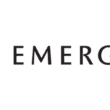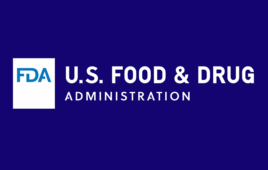
[Image from Unsplash]
That seemed to be a major takeaway from panels on regulation and reimbursement at Healthegy’s Medtech Conference, held last week in Minneapolis.
“We’re actually going to be doing more early clinical work with the FDA,” said Stacey Pugh, vice president and general manager of neurovascular at Medtronic.
New medical device requirements in Europe could make CE Mark requirements as tough as FDA requirements, Pugh said. A growing number of European countries including Spain, Portugal, Sweden and France are also requiring economic data to prove a device’s value – something the U.S. does not presently require, said Bonnie Handke, vice president of health economics, policy and payment at Medtronic.
Meanwhile, China has also seen a recent flurry of regulatory activity. “Somebody could ask me, ‘What is my requirement in China?’ … What is was 12 months ago is very different from what it is today,” Pugh said.
“The requirements in China … overlaid with economic requirements in Europe turn the whole piece of what market access looks like into a very dynamic picture,” Pugh said.
Add to the flux the shift in the U.S. and other countries toward making healthcare more value-based – in other words, more efficient and effective. Health providers, though, are still figuring out what value-based care is, said Nimesh Shah, chief business officer at Fractyl Laboratories. Shah encourages medical device insiders to take a fresh look at the U.S. and other markets.
“Don’t have preconceived notions. It’s not always Germany first. It may be U.S.A. first. It may be Singapore first. Just kind of map out all the countries that are out there. Have a matrix,” Shah said.
U.S. regulatory environment improving
The regulatory environment in the U.S., in fact, may be improving. That seemed to be the sentiment coming out of a separate panel that not only included medical device executives with recent FDA experiences, but also Dr. William Maisel, deputy director for science and chief scientist at FDA’s Center for Devices and Radiological Health.
Several years ago, FDA’s CDRH rewrote its vision statement to include the phrase that the U.S. should be first in the world for medical device innovations.
“There was a lot of resistance in our organization to putting that into our vision statement, but we felt it was really important … because we wanted to send a message … that we cared about getting our patients and consumers access to important technologies,” Maisel said.
Since then, there’s been a “turning of the aircraft carrier,” Maisel said. There has been more focus on weighing benefits versus risks, versus trying to have no risks. Customer service has become more important, too.
“We want our staff to be interactive. We want them to answer your questions. If you’re reviewing your file and they have a question, we don’t want them to wait 60 days and send you a letter. We want them to pick up their phone and call you,” Maisel said.
FDA has achieved significant reductions in the time taken to achieve a PMA, 510(k) clearance or de novo authorization. “There are more improvements to be made, but we’re optimistic about the future, Maisel said.
When Andrew Cleeland was CEO of transcatheter mitral valve replacement device developer Twelve, “I was really anti-interaction with FDA,” Cleeland said.
Medtronic acquired Twelve in 2015 for $458 million, and it was no longer an option.
“We had to interact with FDA, and we did, and it’s been a remarkable 18-month period of interaction,” said Cleeland, who is vice president and general manager of TMVR at Medtronic and CEO of the Silicon Valley–based Fogarty Institute for Innovation.
“We interact on a weekly basis,” Cleeland said of Medtronic TMVR’s work with FDA. “We’ve worked through the early feasibility study. That process was remarkable in its consistency and predictability. We’re now working with them on our pivitol trial design, and that process has been remarkable all the way through.”
Cleeland summed it up: “My experience there has been remarkable, and my advice to the room is interact early and interact often with FDA. Take the risk. It’s well worth it.”
[Want to stay more on top of MDO content? Subscribe to our weekly e-newsletter.]






